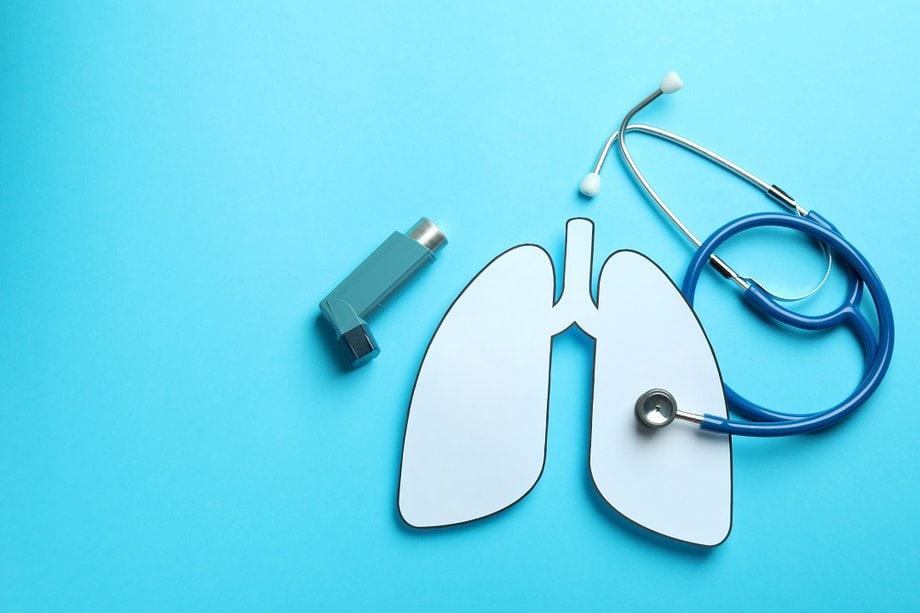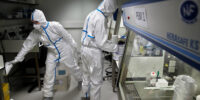How to Maintain Respiratory Health to Prevent Viral Infections

This article aims to provide evidence-based strategies for maintaining respiratory health and preventing viral infections.
The respiratory system plays a vital role in gas exchange and immune defense, making it crucial to prioritize its well-being.
Hand hygiene, a healthy diet, regular exercise, and managing environmental factors are essential components of respiratory health.
Additionally, stress management and vaccinations are effective measures for optimizing respiratory function.
By implementing these best practices, individuals can protect themselves and others from viral respiratory infections.
Key Takeaways
- Regular exercise improves lung capacity and respiratory efficiency.
- Effective hand hygiene, including handwashing with soap and water or using hand sanitizers with at least 60% alcohol, is crucial in preventing the spread of viral infections.
- Following a healthy diet and staying hydrated supports lung function and prevents respiratory infections.
- Vaccinations play a crucial role in preventing viral infections and contribute to herd immunity, which safeguards respiratory health.
Understanding the Respiratory System
The respiratory system is responsible for the exchange of oxygen and carbon dioxide in the human body. It consists of various organs and structures, including the nose, throat, trachea, bronchi, and lungs.
The primary function of the respiratory system is to facilitate the intake of oxygen and removal of carbon dioxide from the body. However, this vital system can be susceptible to various respiratory diseases, such as asthma, chronic obstructive pulmonary disease (COPD), and pneumonia.
These conditions can impair lung function and hinder the exchange of gases, leading to breathing difficulties and reduced overall respiratory health.
Understanding the respiratory system and its functions is crucial in preventing and managing respiratory diseases, as it allows for targeted interventions and strategies to maintain optimal lung function and promote respiratory health.
Importance of Hand Hygiene
This discussion will focus on the importance of hand hygiene, specifically effective handwashing techniques and the role of hand sanitizers.
Hand hygiene is crucial in preventing the spread of infectious diseases, as hands are a common mode of transmission.
Effective handwashing techniques involve using soap and water, rubbing hands together for at least 20 seconds, and thoroughly rinsing and drying hands.
Hand sanitizers, on the other hand, can be used when soap and water are not readily available, but they should contain at least 60% alcohol to be effective.
Effective Handwashing Techniques
Effective handwashing techniques involve using warm water, soap, and proper hand-rubbing motions for a sufficient duration to remove and kill germs. Proper handwashing is crucial in maintaining hand hygiene to prevent the spread of infectious diseases. Studies have shown that handwashing with soap reduces the risk of respiratory infections by up to 16%.
To perform proper handwashing, wet hands with warm water and apply enough soap to cover all surfaces. Rub hands palm to palm, interlace fingers, and rub the back of each hand with the opposite palm. Then, rub the back of fingers against the opposite palm with clasped fingers. Next, clean the thumbs by rotating them in a rotating fist motion. Finally, rinse hands thoroughly with water and dry them with a clean towel or air dryer.
Following these hand hygiene techniques can significantly reduce the transmission of germs and promote overall respiratory health.
Role of Hand Sanitizers
Hand sanitizers play a significant role in reducing the presence of harmful microorganisms on the hands. They are an effective alternative to handwashing when soap and water are not readily available. Here are four reasons why hand sanitizers are important in maintaining respiratory health:
- Convenience: Hand sanitizers are portable and can be easily carried in pockets or bags, making it convenient to use in various settings.
- Accessibility: Hand sanitizers are widely available in different forms, such as gels, foams, and sprays, making it accessible for everyone to use.
- Efficiency: Hand sanitizers containing at least 60% alcohol have been found to effectively kill many types of germs, including viruses.
- Complement to other preventive measures: Hand sanitizers should be used in conjunction with other preventive measures, such as wearing masks and practicing proper respiratory etiquette, to reduce the risk of viral infections.
Healthy Diet for Respiratory Health
A diet that promotes respiratory health consists of nutrient-rich foods that support lung function and help prevent viral infections. Smoking cessation plays a crucial role in maintaining respiratory health. Smoking damages the airways and decreases lung function, leading to an increased risk of respiratory infections. Therefore, quitting smoking is essential for improving respiratory health and reducing the risk of viral infections.
Additionally, hydration plays a significant role in maintaining respiratory health. Staying adequately hydrated helps to keep the airways moist, which aids in the removal of mucus and foreign particles. It also helps to thin and loosen mucus, making it easier to cough up and clear the airways. Adequate hydration is vital for preventing respiratory infections and maintaining optimal respiratory function.
Regular Exercise for Strong Lungs
Regular exercise is crucial for maintaining strong lung function and promoting overall respiratory well-being. Engaging in physical activity on a regular basis not only improves lung capacity but also enhances the efficiency of the respiratory system. Lung capacity improvement can be achieved through various exercises that target the muscles involved in breathing. These exercises can include deep breathing exercises, diaphragmatic breathing, and pursed lip breathing. Deep breathing exercises involve taking slow, deep breaths, filling the lungs completely and exhaling slowly. Diaphragmatic breathing focuses on engaging the diaphragm to maximize the amount of air that can be taken in. Pursed lip breathing involves inhaling through the nose and exhaling through tightly pursed lips, which helps to control the flow of air and prevent air trapping. Incorporating these breathing exercises into a regular exercise routine can help improve lung capacity and promote respiratory well-being.
| Lung Capacity Improvement Exercises | Benefits |
|---|---|
| Deep breathing exercises | – Increases lung capacity – Enhances oxygen uptake – Strengthens respiratory muscles |
| Diaphragmatic breathing | – Improves lung function – Increases oxygenation – Reduces shortness of breath |
| Pursed lip breathing | – Helps control breathing rate – Prevents air trapping – Reduces breathlessness |
Environmental Factors Affecting Respiratory Health
This discussion will focus on the impact of air pollution on respiratory health, the role of allergens and irritants in respiratory problems, and the differences between indoor and outdoor air quality.
Air pollution, including pollutants such as particulate matter and toxic gases, can have detrimental effects on the respiratory system, leading to various health issues.
Allergens and irritants, such as pollen, dust mites, and pet dander, can trigger respiratory symptoms and exacerbate existing respiratory conditions.
Moreover, understanding the disparities between indoor and outdoor air quality is crucial, as individuals spend a significant amount of time indoors, where indoor pollutants can accumulate and pose potential health risks.
Air Pollution’s Impact
One factor affecting respiratory health is the impact of air pollution on the respiratory system, which has been extensively studied in the scientific literature. Air pollution, particularly in urban areas, has been found to have detrimental effects on respiratory health, especially in children.
- Exposure to air pollution can lead to the development or worsening of respiratory conditions such as asthma and bronchitis in children.
- Air pollution can also impair lung development in children, leading to long-term respiratory problems.
- Particulate matter, such as fine particles and pollutants, present in air pollution can irritate the airways and cause inflammation, further compromising respiratory health in children.
Understanding the impact of air pollution on respiratory health in children is crucial for public health interventions and policies aimed at reducing air pollution levels and protecting the respiratory health of vulnerable populations.
Allergens and Irritants
Exposure to allergens and irritants, such as pollen, dust mites, and pet dander, can trigger allergic reactions in individuals with respiratory sensitivities. To maintain respiratory health and minimize the risk of allergic reactions, it is important to implement effective allergen control measures.
Firstly, regularly cleaning and vacuuming the living space can reduce the presence of allergens. Additionally, using allergen-proof covers on pillows, mattresses, and bedding can prevent the accumulation of dust mites.
It is also advisable to keep windows closed during high pollen seasons and to use air purifiers with HEPA filters to remove airborne allergens. Furthermore, practicing good personal hygiene by washing hands frequently and avoiding close contact with pets can prevent exposure to pet dander.
These respiratory health tips can help individuals reduce their susceptibility to allergens and irritants, promoting better overall respiratory well-being.
Indoor Vs. Outdoor Air
Indoor and outdoor air quality can vary significantly. Outdoor air often contains higher levels of pollutants and allergens than indoor air. This is mainly due to the presence of sources such as vehicle emissions, industrial activities, and natural events like wildfires.
The following are three factors that contribute to the difference in air quality between indoor and outdoor environments:
- Ventilation: Indoor spaces are often more enclosed, which can lead to a buildup of pollutants. Proper ventilation systems are crucial in removing pollutants and maintaining good indoor air quality.
- Filtration: Indoor air can be filtered to remove particles and allergens through the use of air purifiers or HVAC systems with effective filters. Outdoor air, on the other hand, lacks this level of filtration.
- Proximity to pollution sources: Individuals living in urban areas or near industrial sites are more likely to be exposed to higher levels of outdoor air pollution compared to those in rural or remote locations.
Understanding the differences between indoor and outdoor air quality is important for implementing measures to improve respiratory health and minimize the risk of respiratory infections.
Managing Stress for Optimal Respiratory Function
To optimize respiratory function, effectively managing stress is crucial. Stress has been shown to negatively impact respiratory health, leading to increased susceptibility to viral infections.
One effective strategy for managing stress is through the practice of breathing exercises. Breathing exercises have long been used as a technique to reduce stress and promote relaxation. These exercises involve deep, slow breathing, which can activate the body’s relaxation response and decrease the release of stress hormones.
One such technique is diaphragmatic breathing, where one focuses on breathing deeply into the abdomen rather than shallowly into the chest.
Another technique is progressive muscle relaxation, which involves systematically tensing and then relaxing different muscle groups while focusing on deep breathing.
Incorporating these breathing exercises into a daily routine can help manage stress and optimize respiratory function.
Importance of Vaccinations for Respiratory Health
The importance of vaccinations in promoting respiratory well-being cannot be overstated. Vaccines play a crucial role in preventing viral infections and maintaining respiratory health.
Vaccines are designed to stimulate the immune system, prompting it to produce an immune response against specific pathogens. By doing so, vaccines effectively prevent the onset of respiratory infections caused by viruses such as influenza and measles.
Moreover, vaccines not only protect individuals who receive them but also contribute to the concept of herd immunity. Herd immunity occurs when a significant portion of a population is immunized, reducing the overall transmission of a virus and protecting those who are unable to receive vaccinations, such as infants and individuals with compromised immune systems.
Therefore, vaccine effectiveness and achieving herd immunity are vital in safeguarding respiratory health.
Best Practices for Respiratory Health at Home and Work
Implementing effective strategies for promoting respiratory well-being in both home and work environments is crucial in minimizing the risk of respiratory illnesses and maintaining optimal health.
When it comes to respiratory health during travel, it is important to take certain precautions. This includes avoiding close contact with individuals who are sick, practicing good hand hygiene, and wearing masks in crowded areas or on public transportation.
In addition, maintaining good indoor air quality at both home and work is essential. This can be achieved by ensuring proper ventilation, using air purifiers, and regularly cleaning and dusting the environment.
Furthermore, respiratory health in children at school can be enhanced by creating a clean and healthy environment. This involves regular cleaning and disinfection of surfaces, promoting hand hygiene practices, and implementing proper ventilation systems.
Frequently Asked Questions
How Can I Improve My Respiratory Health if I Have Allergies?
Incorporating alternative treatments and practicing breathing exercises may help improve respiratory health for individuals with allergies. These methods have been shown to alleviate symptoms and promote overall lung function.
Can Smoking Affect My Respiratory Health Even if I Don’t Have Any Pre-Existing Conditions?
The effects of smoking on respiratory health are well-documented. Even in the absence of pre-existing conditions, smoking can lead to respiratory issues such as chronic bronchitis, reduced lung function, and an increased risk of respiratory infections. Secondhand smoke also poses similar risks.
Is It Necessary to Wear a Mask to Protect My Respiratory Health, Even if I’m Not Sick?
The necessity of wearing a mask to protect respiratory health, even in the absence of illness, should be evaluated in the context of the benefits of maintaining respiratory health for overall well-being and strengthening the immune system to prevent respiratory infections.
Are There Any Specific Vitamins or Supplements That Can Boost Respiratory Health?
Research has shown that certain vitamins, such as Vitamin C, and herbal remedies may have potential benefits for respiratory health. However, further studies are needed to determine their specific effects and dosages for preventing viral infections.
What Are Some Natural Remedies or Alternative Therapies That Can Improve Respiratory Health?
Natural remedies and alternative therapies can potentially improve respiratory health. These interventions may include herbal remedies, such as eucalyptus or ginger, breathing exercises, acupuncture, or yoga. Further research is needed to establish their efficacy.









